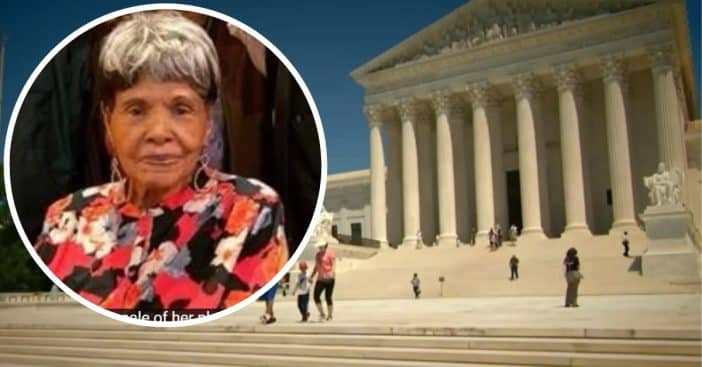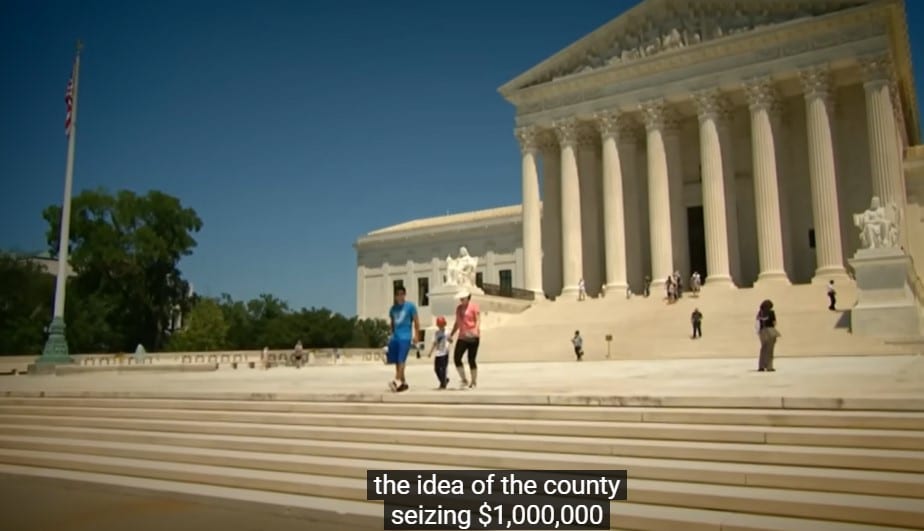
Recently, the USA Supreme Court heard oral arguments in a case that could have nationwide implications over a state’s authority to seize homes from homeowners who fail to pay their property taxes. The case involves Geraldine Tyler, a 94-year-old Minnesota grandmother whose condominium was seized by Hennepin County in 2015 after she failed to pay approximately $15,000 in outstanding property taxes, penalties, interest, and costs.
During the two-hour hearing, a clear majority of justices on both sides appeared to support Tyler’s case, with her lawyers arguing that the state’s policy was a “home equity theft scheme.” Under Minnesota’s forfeiture laws, the county sold Tyler’s home for $40,000 and kept the surplus proceeds.
Geraldine Tyler’s lawyer says the county acted unconstitutionally

Geraldine Tyler purchased her condominium in 1999 and lived there until 2010, when she moved to a senior living center at the behest of her children. It is undisputed that the 94-year-old failed to pay property taxes on the condo for five years, despite repeated notifications that failure to pay would result in the loss of her property. By 2015, she owed $15,000 in unpaid taxes, interest, and fees. After offering her several options, including a tax payment plan for seniors, the county finally seized the condo in 2015 and sold it at a public auction for $40,000.
RELATED: Woman Doesn’t Tip At Outback Steakhouse, Gets Rude ‘Tip’ Back
However, during the Supreme Court hearing on Wednesday, Tyler’s lawyer, Christina Martin, argued that the county’s actions resulted in an unconstitutional taking of the property. Martin claimed that the county kept the $25,000 surplus over the amount owed in back taxes, which amounts to a taking without just compensation, an act that is against the Constitution.
Supreme Court Justice Slams Hennepin County’s Lawyer, Neal Katyal for saying Geraldine Tyler had no right to sue
During the Supreme Court hearing, Neal Katyal, representing Hennepin County, argued that Geraldine Tyler had no legal standing to sue because she had no equity in her condo at the time it was sold. According to state law, the seizure automatically canceled her debts, which included $59,000 in mortgage payments and unpaid condo fees.

However, the attorney failed to convince the court, and his arguments seemed to irritate the justices, particularly when he referred to states that had laws similar to Minnesota’s during the founding era. He cited the Statute of Gloucester in 1278, and this got one of the Judges, Justice Neil Gorsuch, furious. “Tyler was not a vassal owing fealty to her lord but a modern-day simple owner of real property,” the judge said. “I just don’t understand what on Earth any of that history has to do with this case.”
Katyal repeatedly referred to a 1956 Supreme Court ruling that upheld a law similar to Minnesota’s, in which a house was sold for $7,000 over an unpaid $65 water bill. Justice Kagan asked if there were any limits on this, such as a $5,000 tax debt on a $5 million house and the state deciding to keep it. Katyal argued that this scenario was nothing like Tyler’s case. He pointed out that the 94-year-old had abandoned the property by affirming that she wanted “nothing to do with the condo.” Therefore, he claimed, Tyler had no standing to sue.
Justices’ support tilt towards Geraldine Tyler as Neal Katyal’s argument crumbles
Despite Katyal’s arguments, the justices, both conservative and liberal, did not seem convinced by his position. “What’s the point of the takings clause?” Chief Justice Roberts asked. “I mean that was something that was pretty important to the framers. Why did they put that in there.”

Justice Brett Kavanaugh expressed a similar viewpoint, questioning why the Constitution should be interpreted in a way that disfavors real property. Justice Ketanji Brown Jackson, a liberal justice, also pointed out that the majority of states do not have laws like Minnesota’s and that most states have mechanisms in place to return the surplus money to homeowners.
However, the Supreme Court justices seemed to indicate that they would deal with any potential practical problems at a later time rather than let them impact their decision in this case as the verdict is expected by summer.
